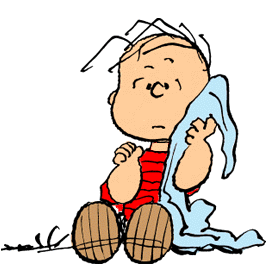"Our Man In Havana", Graham Greene, 1958
First, it's been a month since I posted here. I've been in the doldrums of James Joyce's difficult "Ulysses", which I believe I understand on some levels (psychological, spiritual) but know I do not on others (cultural, literary), so I've recruited the help of "The New Bloomsday Book" to assist me. I got 461 pages in before I decided that, so the journey has been a rough sail, but I'm excited for the assistance, and strangely excited to go back through the book. I'm going to make it like a college course and study a few nights of the week, and will be an undergrad level "Ulysses" scholar by the time I finish the novel and its companion.
But oh, I've toiled.
Got to the point I had to read something else with it, and all knows Nietzche wasn't the one for it (figured that out tough) so after dabbling in "The Portable Kerouac" found in a Flagstaff used bookstore, I took Graham Greene's "Our Man In Havana", and up against the sometimes-impermeable "Ulysses", it was a fast, engaging read, even more readily appreciated because of Christopher Hitchens' intro, which at first I hated, and am now even more indebted to.
See, I tried reading Hitchens' "God is Not Great", but I find that he is far too in love with the sound of his own voice. Not to mention his writing is boring. However, this short essay on the ontological aspect of Greene's "entertainment" on Cold War Era espionage (from the British side) is right on the money. Greene's writing is clear enough in its purpose that the introduction serves only to put into words what we figure easily enough by reading -- that Jim Wormold, the middle-aged vacuum cleaner selling protagonist, was floating toward death and in need of an awakening from his luke warm state. The incompetent secret service in Britain was the just the thing to assist him, and before you know it, he was of sudden importance, and took advantage of it to rough consequence, before crushing both identities and
living. There are risks and there are rewards in stepping out of your box; and as opposed to Kurt Vonnegut's impressive, dire "Mother Night", Greene goes for the lighter side and Wormold's world manipulates him juuuuuuuust right to get around the worst of fates.
The transformation of Wormold's being, then, is primary, and the events of the Cold War it premeditates are secondary, perhaps only an interesting and relevant setting for growth, and I'm sure for the time, an incendiary commentary on British incompetence. But it's really all about Jim, the pathetic man who sits late at nights with his only friend, Dr Hasselbacher, also old and pathetic, after his vacuum job. When the infantile, idiotic Hawthorne comes to see him at the bar and make him Our Man In Havana, Wormold sees the way to make some extra cash by creating fake agents under him and submitting numerous reports under these aliases, and using sketches of vacuum cleaner parts to pass as designs for bombs. The cash is, of course, to get him and his daughter, 17-year-old bombshell Milly, back to Great Britain, and away from sex fiend Captain Segura. Thus, he becomes, as Greene would say through secretary Beatrice, a successful, well-paid writer of bad fiction, who cares not about his characters. He's living on the edge, which would cost him his best friend, and his Havana world, but the consequences don't seem to outdo the ultimate rewards, and perhaps Greene is chiding himself early on for the inevitable death of Hasselbacher, who seems so easily disposed of.
Regardless, Wormold eventually outsmarts Segura, finds he is not a killer and delights in the moral standard he now owns and we realize the difference between the real and artificial in life, so we blame nottasoul when his ending sees him back in Britain with job, Beatrice as a girlfriend, and all the money he saved up to get Milly a better life. He crushes the old sad Wormold by finding an actual mission to live for (quite existential, the belief we are capable of satisfying a great objective), he crushes the new Wormold by standing up to his lies and seeing the incompetent crushed. And Christopher Hitchens might say this far better than I, but hey, this is my reflective spot. Being is being able to be
something rather than simply floating. For Wormold, a traditional-minded, low-key, loving push-over father, the be
something is naturally to provide and be there for his loved ones. In a quirky, fun, rollicking way, Greene presents his character study with great intrigue.
Thank all, too, that Milly drops the duenna face, too, and grows to be a woman. Her transformation is subtle, but it seems father and daughter are destined for a much closer relationship; and the entrance of Beatrice into their world, a non-Christian womanly influence on Milly, can only help bridge the gap between Jim and his daughter. The old silly Milly of Catholic mockings was, after all, crazy enough to get involved with Segura. Man, evolve!
"If I love or if I hate, let me love or hate as an individual. I will not be 59200/5 in anyone's global war" (Wormold)

